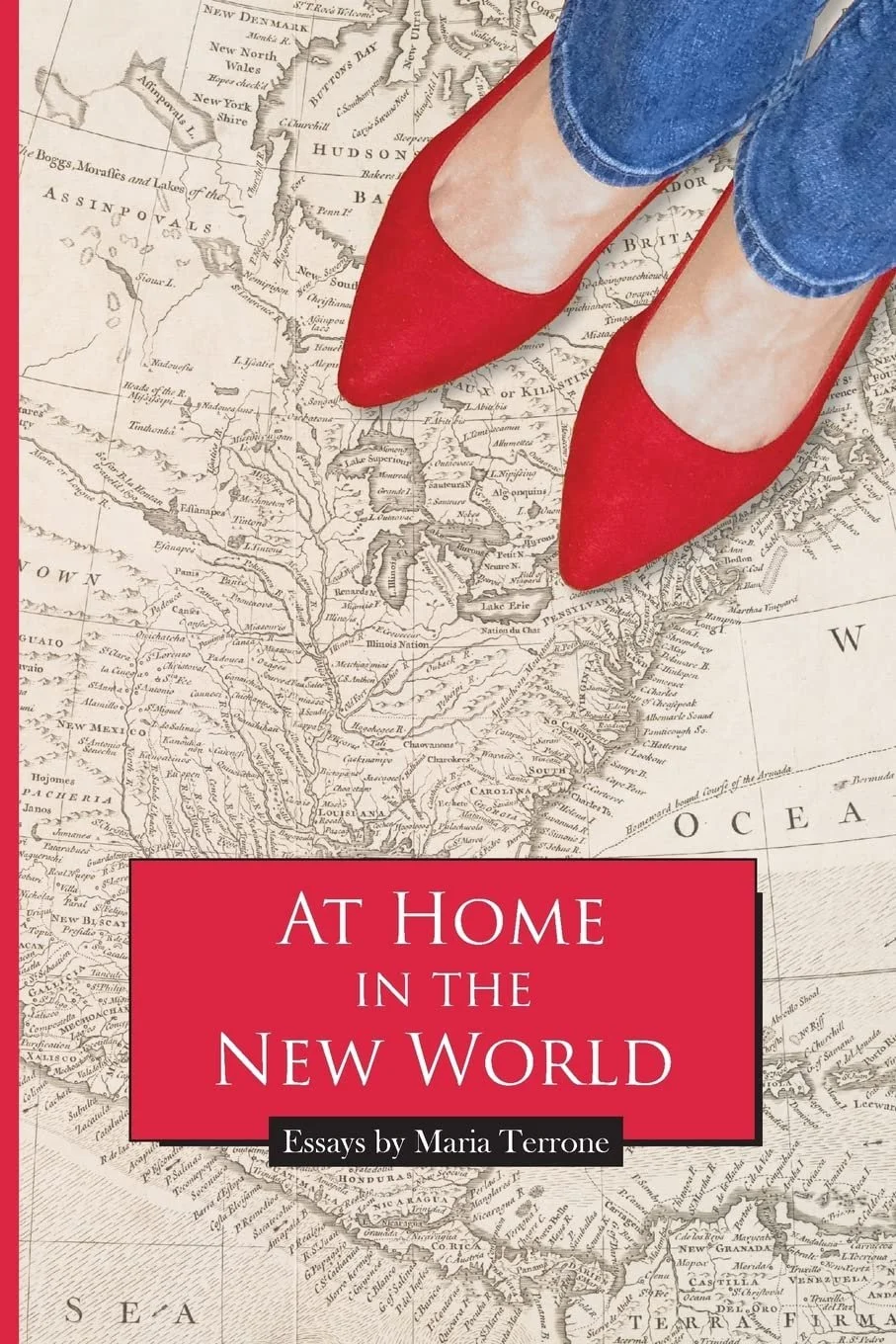At Home in the New World
At Home in he New World
by Maria Terrone (VIA Folios, $15.12)
In her debut essay collection, Maria Terrone—a Queens native born to first-generation Italian-American parents—brings to life memories and musings on topics like food, family, fear, and one New Yorker’s journey in the face of them all.
Written in conversational prose and driven by a lyrical imagination, At Home in the New World shows traces of Terrone’s multiple poetry collections. Her essays even include selections of her own verse, as well as allusions to poets like Gertrude Stein and Stephen Dunn. In this collection, she creatively navigates the spaces between her roots and her future, between who she is expected to be and who she discovers she can be.
As the world that is New York City continues evolving, Terrone’s curiosity takes a poetic and reflective turn with snapshots of New York over time: Skipping rope in the quiet Queens of her childhood. Watching her Sicilian grandmother prepare traditional dishes in her pre-war East Harlem kitchen. Strolling through the vibrant streets of modern-day Jackson Heights, passing a new generation of young people in this ever-changing neighborhood.
Coming of age as a Baby Boomer, Terrone sets the scene in the New York City of her youth. She shares stories shaped both by the eclectic characters she meets in the city as well as moments in world history, like the war in Vietnam.
What’s especially striking is her restraint. Her tone and voice are inviting and warm, but with a subtle restraint that reads as slightly formal and performative—as if muscle memory holds on to her family’s trepidation toward “outsiders.”
Just as the distance between her home borough of Queens can feel worlds away from Manhattan, Terrone illustrates how New York’s millions of perspectives and experiences were often just out of reach for her beyond the guarded walls of her family’s own culture.
She reflects on growing up in the milieu of her first-generation Italian-American household. In the essay “Sicily: My Enigma” she shares, “I’d just turned 16 two months earlier and as a striving writer, was hungry for every impression and experience beyond my sheltered life so far.”
She elaborates, “In the family, when tragedy moved in, the adults held it at a remove, as if shameful.” In those cases, curiosity was not encouraged. “For ‘outsiders,’ they invented creative excuses…which usually stopped further questions.”
Of course, an active imagination is not so easily halted, and Terrone’s mind transformed her culture of cautionary tales into vivid storytelling. She revives mundane memories with a penchant for the dramatic. Her essays imagine danger lurking behind a jammed door, in a subway car, and on an idyllic upstate campground.
Terrone often narrates from the periphery of trauma. From a childhood hospital bed, she observes neglectful nurses make a younger child cry. As a teen, she spends a summer transcribing stories of war from soldier intake interviews. These essays position her as an observer, a historian, and a poet. From these perspectives, she shares generations of New York stories—all the while hungry for more ways to connect with those she encounters.
Sharing our stories—and our histories—is how we connect. Generations of Americans remain fascinated by tracing their roots, from inherited stories and family trees to genetic testing kits and reality shows. Terrone’s family history carries its own intrigue, from transatlantic relatives to unknown elements of her father’s background.
This collection arrives at precisely a time when America’s interest in immigration is piqued. Admittedly, today’s Italian-Americans and European immigrants aren’t facing the dangerous discrimination that many others endure as they begin their own American narratives. Folks moving from regions like Latin America, and from the countries on the Trump administration’s growing travel ban list, are experiencing trauma even beyond New York’s Ellis Island anecdotes of poverty, overcrowded ships, and name erasure. Each American narrative carries its own challenges and lessons as every chapter moves forward. This collection has the potential to spark conversations on the many ways people find themselves at home in the ever-changing new world that is America.
Kait Burrier
Kait Burrier is a writer based in New York City. She has curated and hosted for both Union Square Slam and At the Inkwell reading series in NYC. She has facilitated workshops and performed readings, including as AIR at the Lemons Brook Farm Artist Residency. Kait holds an M.F.A. from Wilkes University, where she received the 2013 Wilkes-Etruscan Press prize. You can find her poetry and reviews online and in print, most recently in Not Very Quiet and The Halcyone.


